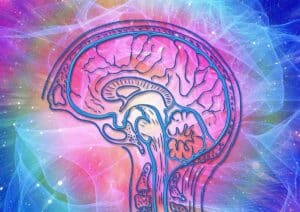“Groundbreaking Study Reveals: 72% of MDMA Group No Longer Meet PTSD Diagnosis Criteria” A new study published last week reveals that the psychedelic drug MDMA, also known as ecstasy or molly, may reduce symptoms of post-traumatic stress disorder (PTSD), and there is hope for its approval for therapy by 2024.
The Multidisciplinary Association for Psychedelic Studies (MAPS), a nonprofit research and educational organization founded in 1986 that focuses on medical, legal, and cultural contexts, sponsored the study, examining how individuals can benefit from the “cautious” use of psychedelics and MDMA in treating PTSD.
Due to the dedication of numerous therapists, collaborators participating in MAPS-sponsored trials, and generous contributors, the FDA is currently reviewing the therapeutic application of MDMA for PTSD, with potential approval expected by 2024. said MAPS’ founder and president, Rick Doblin.
Australia has become the first country to authorize the prescription of some psychedelic substances to patients with depression or PTSD. The results of the study’s third phase were published in Nature Medicine on September 13, 2024. During the study, researchers measured symptoms and outcomes in 104 individuals with PTSD, who were randomly assigned to receive MDMA or a placebo pill over three sessions spaced a month apart. Both groups received talk therapy during the sessions.

One person in the MDMA group dropped out of the study, and some of the reported side effects in the MDMA group included nausea, sweating, muscle tension, and decreased appetite. A standard PTSD diagnosis using a clinical measure found that 86% of the MDMA group showed improvement, compared to 69% in the placebo group. After the study’s completion, 72% of participants in the MDMA group no longer met the criteria for a PTSD diagnosis, compared to 48% in the placebo group.
In July, Australia became the first country to authorize psychiatrists to prescribe certain psychedelic substances to patients with severe depression or PTSD. Therapeutic approval means that Australian therapists can now prescribe MDMA, while psilocybin, a psychoactive component in psychedelic mushrooms, can be administered to individuals with treatment-resistant depression.
The U.S. Food and Drug Administration (FDA) designated psilocybin as a “breakthrough therapy” in 2018, a label designed to expedite the development and review of drugs for serious medical conditions. Researchers studying psychedelic medicines, including Johns Hopkins, and the FDA released guidance last month for researchers designing clinical trials to investigate psychedelic drugs for potential treatments of various medical conditions.
Nevertheless, the American Psychiatric Association has not formally approved the utilization of psychedelics for therapy. Medical professionals in the U.S. and other countries have cautioned that more research is needed to understand the benefits and risks of these substances, which can have potential therapeutic effects but also carry risks of abuse and adverse reactions.
May You Like: 5 Simple Steps to a Better Body